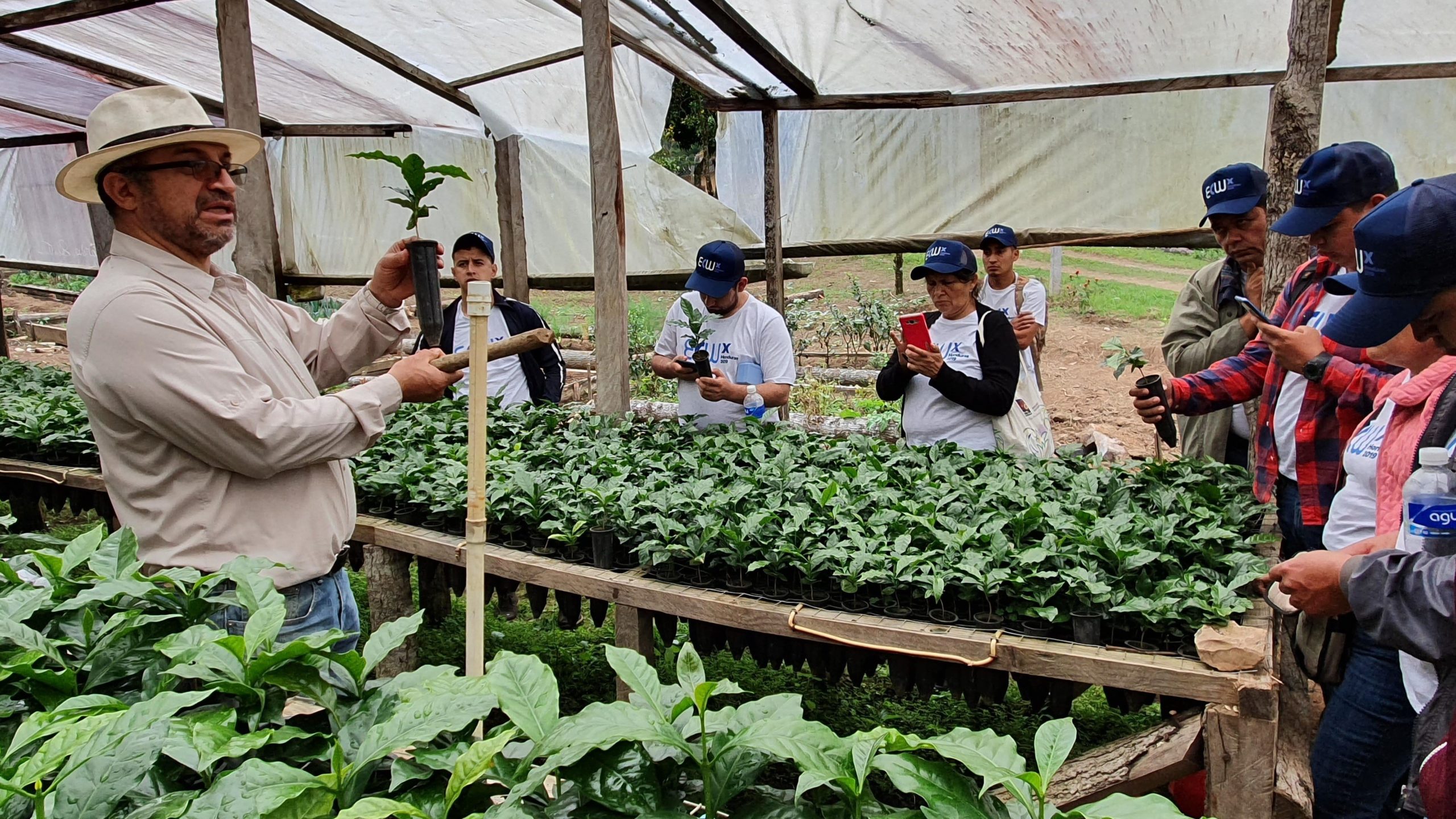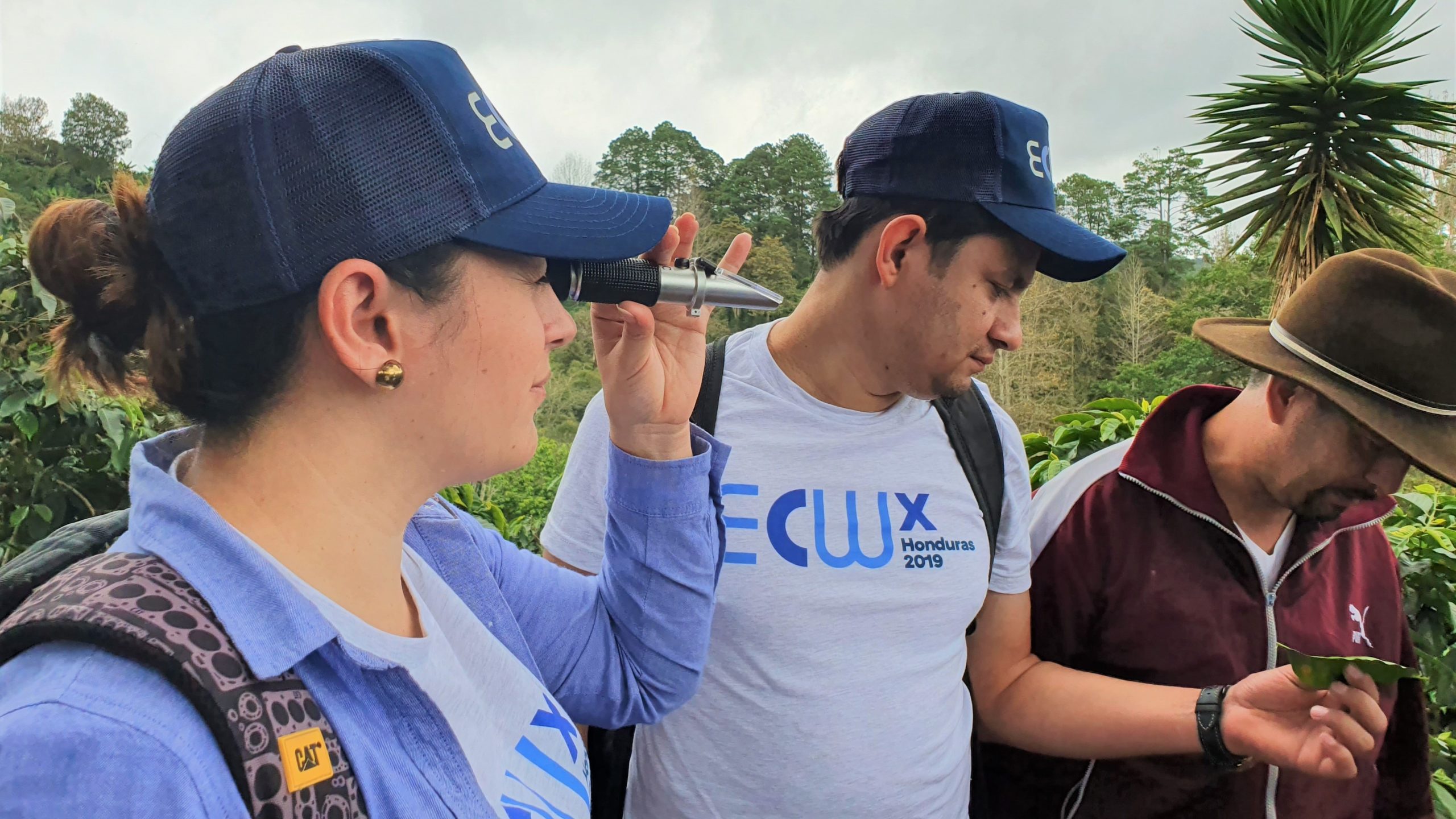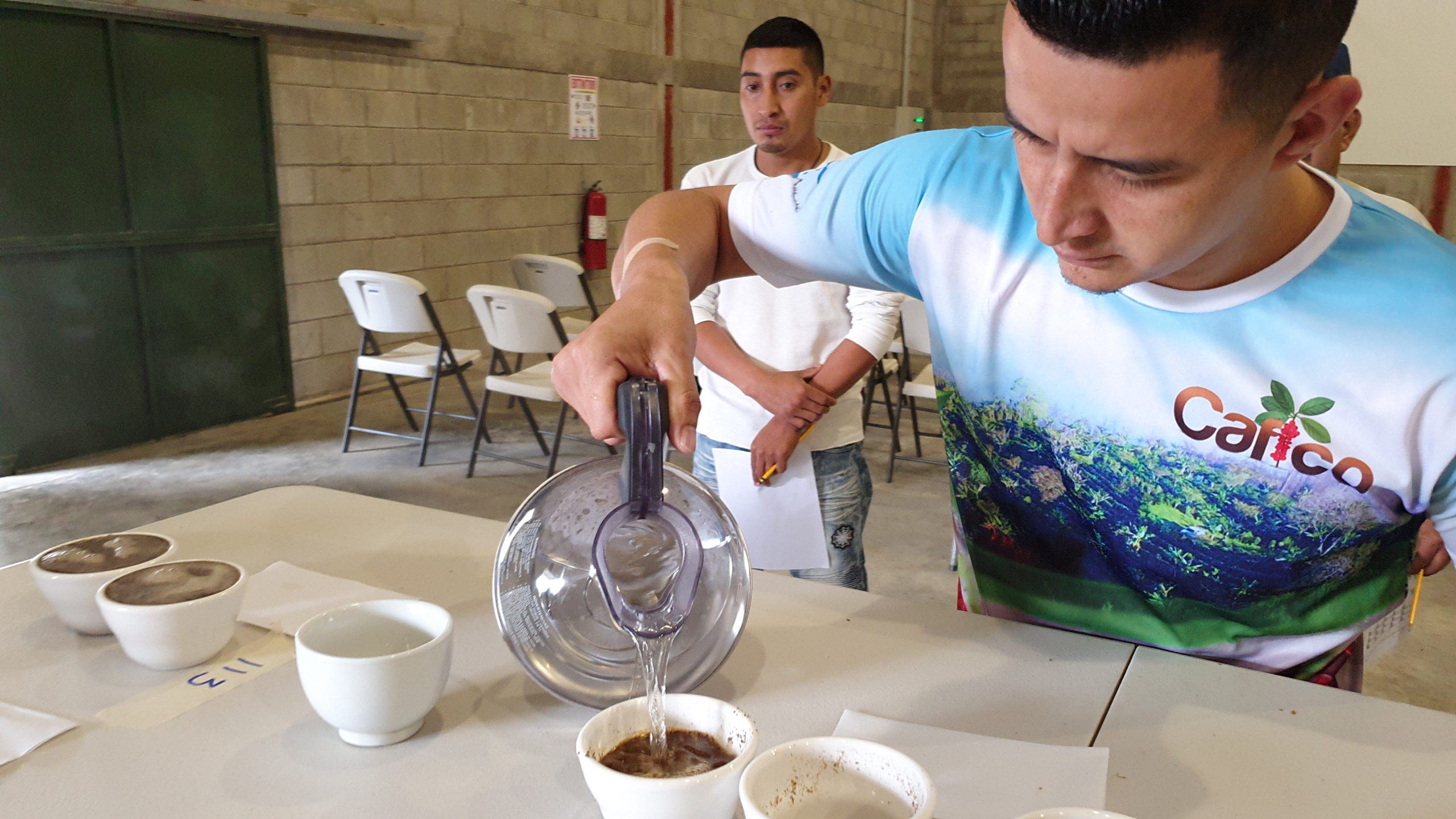
“What coffee variety do you think has the lowest quality?” Intelligentsia Coffee’s Director of Sourcing and Shared Value Michael Sheridan asked this question to a room of farmers and business leaders in Honduras last month. “Lempira!” came the unanimous reply. Michael asked a follow-up question: “What is the variety you have planted most on your farms?” Again, the room called out in unison, “Lempira!”
Lempira, a hybrid coffee plant introduced by the Honduran Coffee Institute as a disease-resistant alternative to traditional varieties, grows well in hot climates. It contains genetics from two different species of coffee: Arabica, which represents the majority of specialty coffee, and the lower-quality, but hardier, Robusta species. The variety was a boon to Honduran farmers in the early 2010s in their fight against the crop disease la roya, and continues to be vital in the face of worsening climate change. But Lempira requires expensive, potentially harmful, fertilization. What’s more, it is perceived by the international market—and by growers, as shown by the responses to Michael’s question—to lack the superior taste needed to earn a price premium.
This is particularly difficult for farmers in the midst of a record-long crash in the global price of coffee. Young people, seeing no future in coffee production, are abandoning their farms and communities, forced to migrate in search of economic opportunity. Lempira—and other country-specific hybrids across the world—may be resistant to climate change, but they may do little to insure farmers against market uncertainty if they can’t qualify for price premiums.
Farmers need to balance coffee quality with climate resiliency. Simple enough in theory, our agronomic advisory work focuses on how to bring these two competing principles together in practice. Small changes can help farmers adapt to climate change while connecting with premium markets and better livelihoods. Agricultural practices such as shade-grown coffee and proper fertilization have the dual effect of producing higher quality coffee while increasing a farmer’s resilience to climate change and reducing their footprint on local ecosystems.

As Michael’s question shows, farmers know what they need to change. The key is to help them understand how to make those changes and connect them with premium markets that will pay higher prices once those changes have been made. With the support of the Feed the Future Partnership for Sustainable Coffee, we’ve teamed up with leading coffee roaster Intelligentsia to help coffee farmers unlock the promise of quality coffee.
In 2018, we co-hosted the first-ever ECWx conference—a local version of Intelligentsia’s global Extraordinary Coffee Workshop gathering—focused on smallholder farmers in Colombia and their specific, local challenges. The five-day event gave farmers and cooperative employees from across the country the opportunity to build their agronomic and business skills while sharing their experiences with other farmers, Root Capital advisors, and members of the Intelligentsia team.
In late 2019, we held our second ECWx in Honduras. In addition to the devastation wrought by climate change and market instability, Honduras has struggled with violence and unrest in recent years. Root Capital has been financing and training cooperatives in Honduras for decades, and we’ve seen how these businesses can help their farmers overcome these challenges. For this edition of ECWx, we set out to combine Root Capital’s deep knowledge of climate resilience with Intelligentsia’s industry-leading quality standards to train dozens of enterprises—representing thousands of farmers—across the country.

The workshop began, like coffee itself does, with the seed. Michael and Geoff Watts—Intelligentsia Vice President of Coffee—explained the three pillars of coffee quality: genetics of the variety, the environment in which it is raised, and the care given to the coffee throughout the entire cycle, from cultivation through the harvest and post-harvest processing. These three pillars combine to cause noticeable differences in the quality—and price—of the final cup.
The training then moved to an award-winning farm where, alongside our agronomic advisory team, attendees delved into the importance of the harvest process, armed with refractometers—a gift to each of the participants of the workshop. These small devices measure the sugar content of coffee cherries and act as the perfect educational tool to show farmers when the fruit is ready to be picked. A cherry plucked at peak ripeness ensures that the coffee bean inside has had the opportunity to fully mature. This results in a final cup of coffee with flavors that pop and command a premium price from international roasters.
The group then discussed the post-harvest process, complete with hands-on demonstrations of attendees’ new thermometer guns—crucial tools that ensure even drying and consistency in the coffee. With help from the Intelligentsia team, we discussed the final, crucial step: finding a market for these high-quality beans. Hearing first-hand about the importance of quality enabled participants to understand what international roasters are looking for. They even got the opportunity to see (and taste) the difference.

We coupled our lectures and workshops with coffee cuppings of Intelligentsia-roasted beans from all over the world. Participants who had never even tried coffees from other parts of Honduras were exposed to unique flavors from places as far away as Colombia and Kenya. They also had the opportunity to taste these coffees alongside their own samples, honing their quality control skills and seeing how drastically flavors vary across the world.
When we focus on not just paying for quality, but taking steps to equip farmers with the skills they need to sustainably achieve it, everybody wins. The consumer reaps a tastier cup of coffee, the roaster solidifies their supply chain with long-term relationships, and—most importantly— farming families open a pathway to more resilient livelihoods.

What do you think?